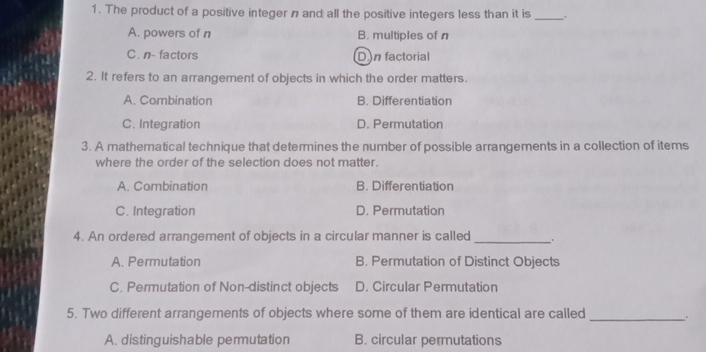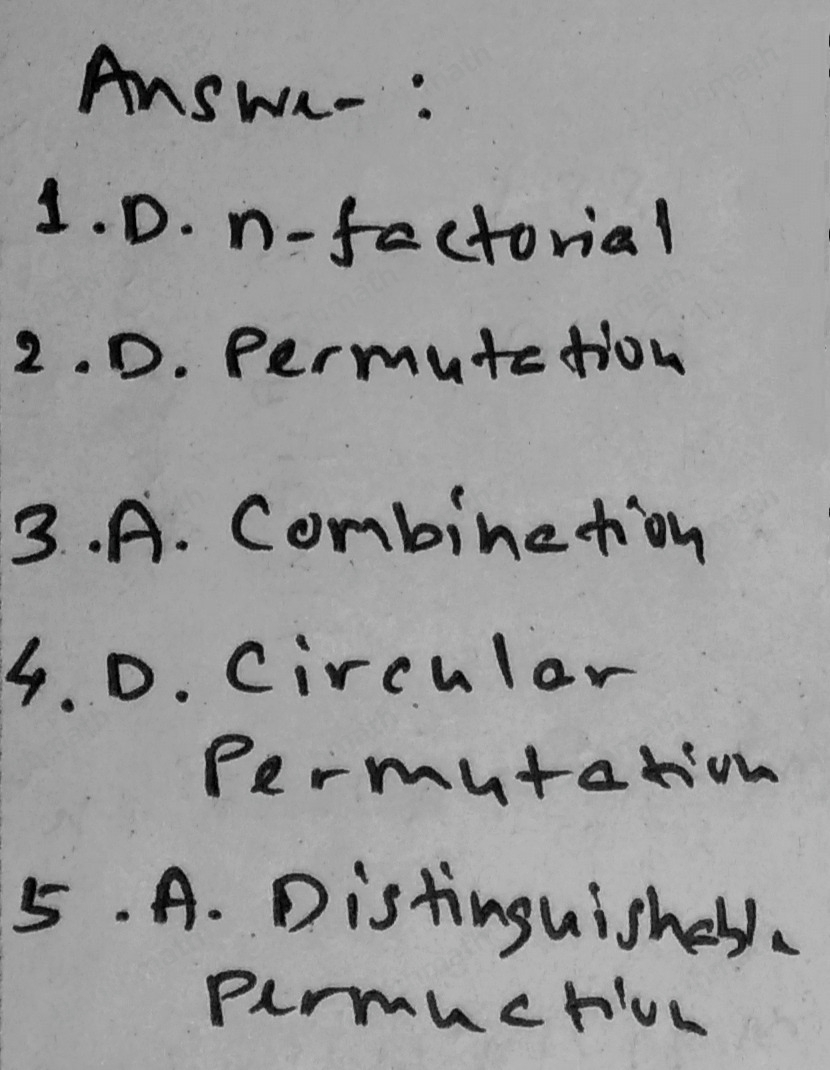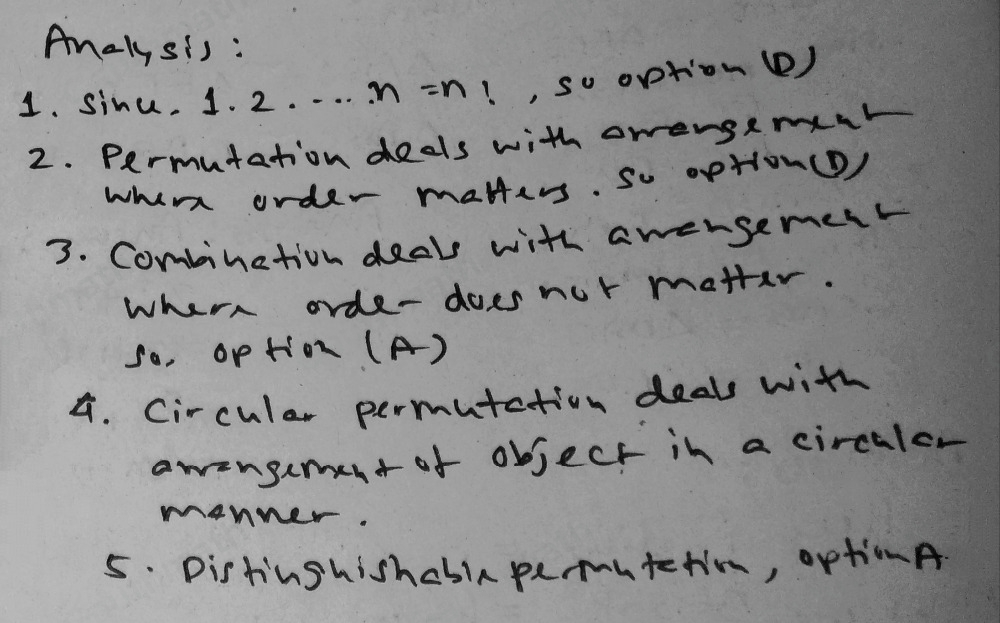1. The product of a positive integer n and all the positive integers less than it is _ A. powers of n B. multiples of n C. n- factors On factorial 2. It refers to an arrangement of objects in which the order matters. A. Combination B. Differentiation C. Integration D. Permutation 3. A mathematical technique that determines the number of possible arrangements in a collection of items where the order of the selection does not matter. A. Combination B. Differentiation C. Integration D. Permutation 4. An ordered arrangement of objects in a circular manner is called A. Permutation B. Permutation of Distinct Objects C. Permutation of Non-distinct objects D. Circular Permutation 5. Two different arrangements of objects where some of them are identical are called . A. distinguishable permutation B. circular permutations
Question


